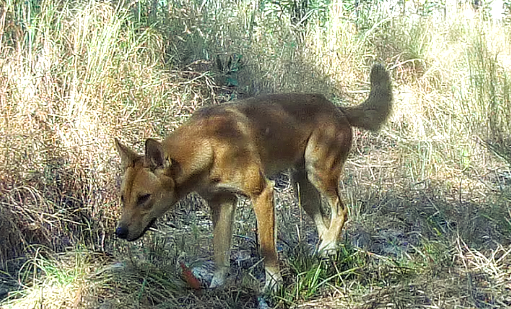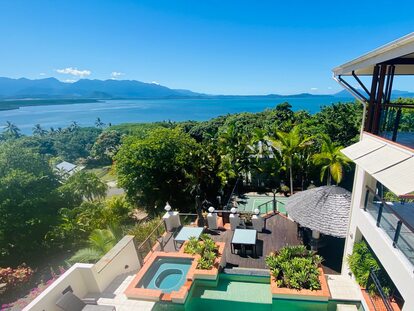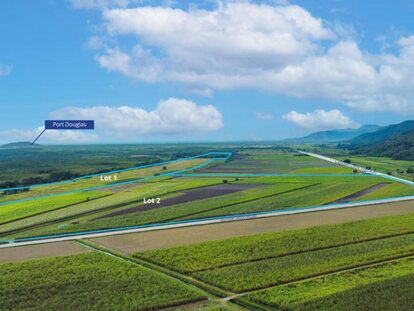'Curiosity isn't stalking' - Douglas Shire dingo expert implores DSC to erect signage
LETTER TO EDITOR

Dear Editor,
Dingoes are Australia’s only natural land apex predator (and) they share and play an important role in our amazing, yet very diverse, ecosystem.
Achieved by keeping down mesopredators (cats, foxes), pest species (rats, rabbits, mice) while they also keep in check mammal species like kangaroos, (or) wallabies.
It’s been proven (that) areas (in which) dingoes exist we see more biodiversity.
They have evolved over thousands of years to live beside our wildlife and rugged vast landscapes, climates, wildfires and extremes.
Dingoes (were) once one of the most widespread animal species on mainland Australia.
They were and still are a totem and a sacred animal to many first nation Australians.
Our Dingoes.
Feeding wild Dingoes can cause them to become habitatulised.
They learn fast!
This is what I’m afraid happened to the dingo that lived near the Sheraton (Mirage).
Feeding dingoes makes them seek out humans for food. This becomes a problem.
Not just for us, but especially for the dingo - as seen on K'gari recently and now here in the Douglas Shire.
Offending dingoes are always trapped and are euthanized. Dingoes are naturally lean. At certain times of the year (they) can appear "skinnier" than the others.
This is completely normal. Please do not intervene.
They only eat when they need to eat. Dingoes don't only eat meat they have been observed eating everything from insects, to fruit, having a very complex wild diet.
They should never be fed food – this is very bad for their health (as) they aren't domestic dogs.
Dingoes are naturally very shy, but curious animals. Curiosity isn't stalking.
They are intelligent animals, they know we are bigger, they know we are dangerous. Watching us from a safe distance just isn’t stalking.
Removing a dingo from its environment has a cascading effect.
Pack disruption can and does occur and can surface as inbreeding, roaming or lone dingoes that don’t have skills necessary to hunt or live a wild life or even endangering the species locally.
We should never remove an apex predator from any ecosystem.
Removing a dingo via lethal means - (baiting, trapping, shooting) i.e the recent dingo at the Sheraton this could've been avoided and didn't have to happen.
It isn’t the only way to deter dingoes from the area, or even to safely remove a dingo. (which we should never do).
There are a lot of options available such as, guardian animals, (dogs, alpaca, donkeys) alarm systems, sprays, fences and education or even signage on how to safely live with/around these animals.
All of this is sustainable and available I’m happy to even help with ideas.
I call again for proper signage to again be placed around the Douglas Shire in known dingo habitat.
If signs were to be put up in the Douglas Shire including some national parks then this would be a good starting point to be able to successful co-exist with dingoes.
Awareness creates education and education creates protection.
We are so lucky to have dingoes in some parts of Australia, including ours, before they become long extinct.
It’s a sad week for Port Douglas.
Regards,
Luke Cooper – Far North Douglas Shire dingo expert
.
Thank you!
Newsport thanks its advertising partners for their support in the delivery of daily community news to the Douglas Shire. Public interest journalism is a fundamental part of every community.
Got a news tip? Let us know! Send your news tips or submit a letter to the editor here.
* Comments are the opinions of readers and do not represent the views of Newsport, its staff or affiliates. Reader comments on Newsport are moderated before publication to promote valuable, civil, and healthy community debate. Visit our comment guidelines if your comment has not been approved for publication.






















